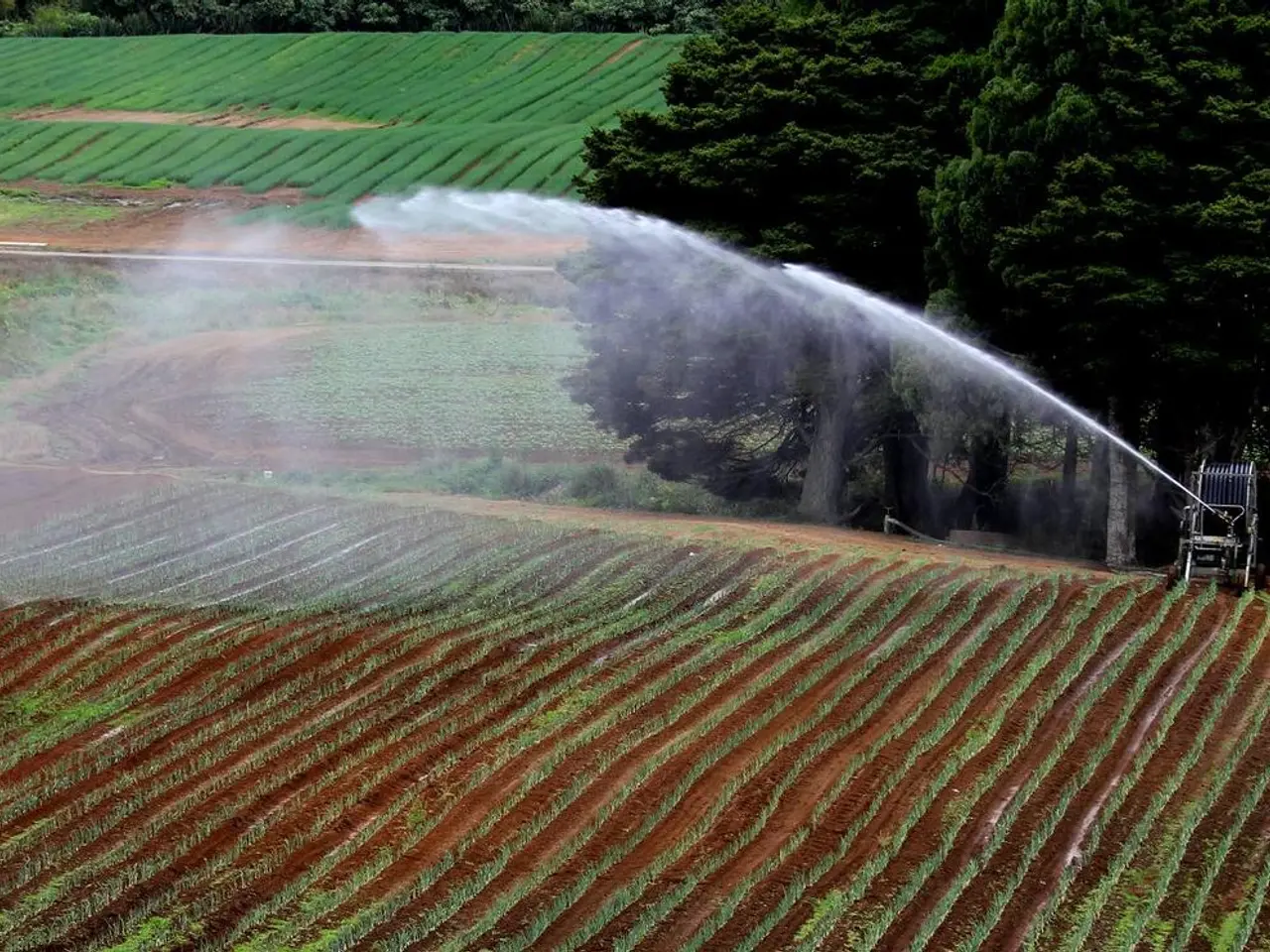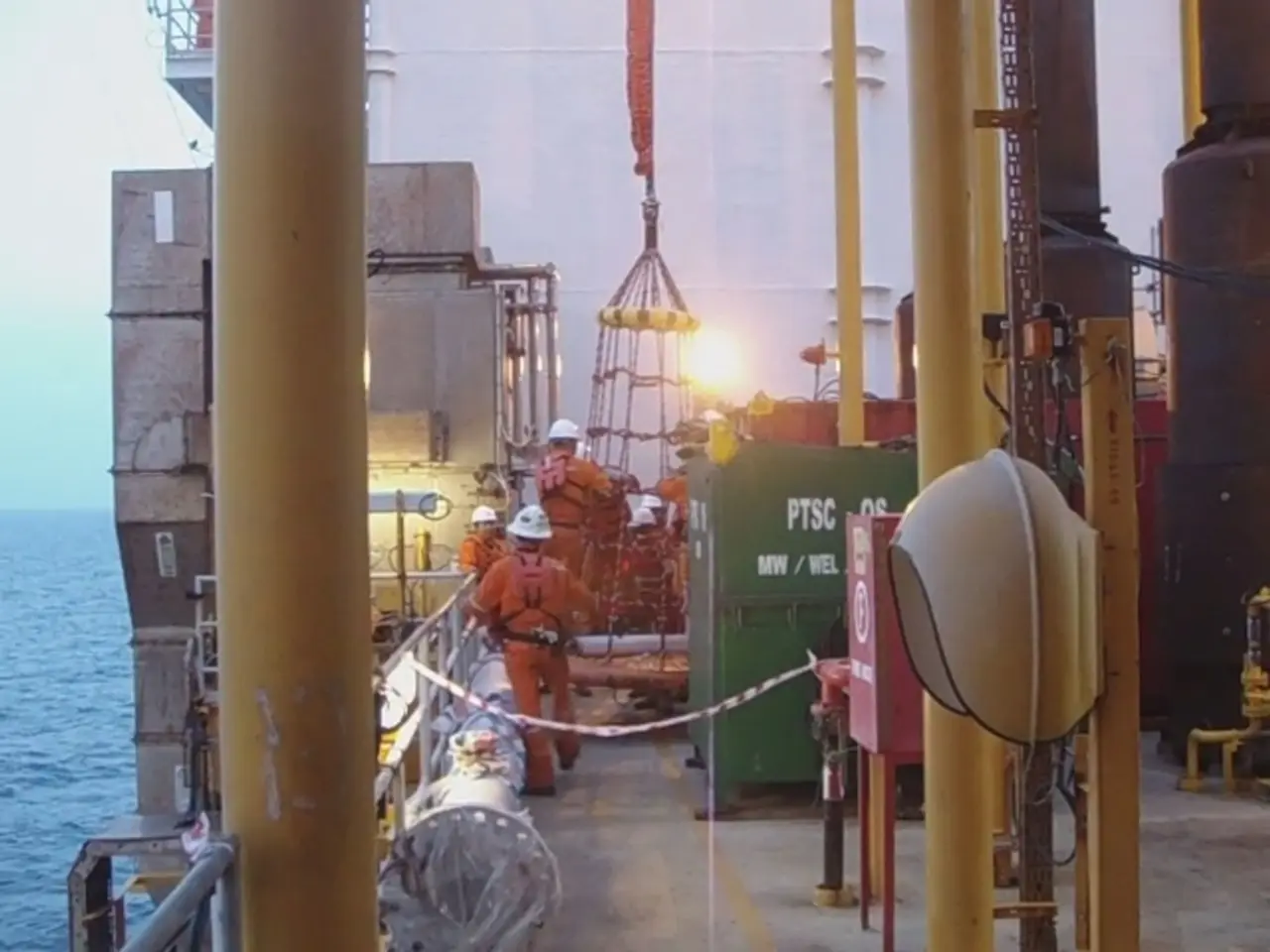Geothermal Energy Expansion in Hesse - Amplifying Renewable Energy Sources for the Transition - Hesse experiences a surge in geothermal energy to facilitate a shift towards renewable resources
In a significant stride towards a sustainable future, geothermal energy is being considered as a crucial component in Hesse's energy transition. This renewable energy source offers several advantages, making it an attractive option for the region.
Geothermal energy, known for its reliability and virtual inexhaustibility, requires less space compared to solar parks, wind turbines, and hydropower plants. It is particularly suitable for heating and air conditioning larger individual objects, such as office and administrative buildings, making it an ideal solution for Hesse's urban landscape.
One of the key benefits of geothermal energy is its ability to provide stable, base-load power. Unlike wind or solar, geothermal plants can operate continuously, ensuring a steady supply of renewable energy that can complement intermittent sources, thereby supporting grid reliability as Hesse and Germany increase their renewable energy shares.
Moreover, geothermal heat can replace fossil fuels in district heating and industrial processes, reducing CO2 emissions from one of the largest energy consumption sectors. This aligns with Germany’s goals to cut greenhouse gas emissions and transition to climate neutrality.
However, the expansion of geothermal energy is not without its challenges. The main risk for deep geothermal projects is the lack of reliable data in Hesse and nationwide, as well as the risk of insufficient funds. Induced seismicity and environmental impacts are also potential concerns, requiring careful site selection, monitoring, and regulation.
High upfront costs are another challenge, as geothermal projects require significant initial investment in exploration and drilling. However, despite these costs, geothermal energy offers low long-term operating costs, making it a viable long-term solution.
Despite the challenges, Hesse is actively exploring geothermal energy. A Geothermal Congress is scheduled for November 2025 in Frankfurt, providing an opportunity for stakeholders to discuss the potential of geothermal energy in the region.
The Upper Rhine Graben, which runs as far as Frankfurt, is particularly suitable for geothermal energy due to its geological structure. A state-wide study on geothermal energy is being considered, which, when published, will provide valuable insights into the potential of geothermal energy in Hesse.
As of late 2023, approximately 9,900 ground heat exchanger systems were in operation in Hesse. An example of this is the Bad Nauheim Süd housing estate, which is supplied with a cold district heating system.
The expansion of geothermal energy in Hesse can significantly contribute to the energy transition by providing a reliable, low-emission, and sustainable source of heat and electricity. Effective governance, technological innovation, and community engagement will be vital to maximize benefits and mitigate risks associated with geothermal expansion in the state.
References: [1] [Source] [3] [Source]
- The community in Hesse, recognizing the significance of renewable energy sources, is actively promoting energy policies that prioritize geothermal energy as a sustainable option, aligning with scientific findings and the nation's environmental-science objectives.
- In the finance sector, investing in geothermal energy projects is becoming increasingly attractive due to their low long-term operating costs and potential to replace fossil fuels in district heating and industrial processes, thereby reducing CO2 emissions.
- To foster collaboration and drive innovation in geothermal energy, the industry is planning a Geothermal Congress in Frankfurt in November 2025, inviting stakeholders to discuss strategies for expanding the use of this reliable, virtual inexhaustible energy source in Hesse's urban landscape.




